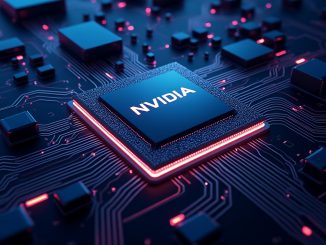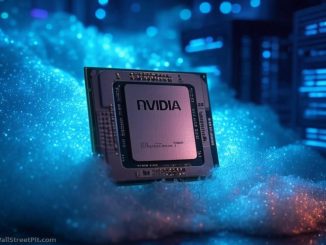
In a significant development that could shake up the rapidly evolving artificial intelligence (AI) industry, tech giant Nvidia (NVDA) has reportedly received a subpoena from the U.S. Department of Justice (DOJ). This legal demand for information, as reported by Bloomberg News citing anonymous sources close to the investigation, suggests that the antitrust watchdog is intensifying its probe into whether the AI chip powerhouse has violated competition laws.
The move marks an escalation in the DOJ’s approach, transitioning from previously issued questionnaires to legally binding requests for evidence. This shift underscores the seriousness with which regulators are viewing potential anti-competitive practices in the critical AI chip market.
At the heart of the investigation are concerns that Nvidia may be employing tactics that make it difficult for customers to switch to alternative suppliers. Officials are reportedly examining whether the company penalizes buyers who do not exclusively use Nvidia’s AI chips, potentially stifling competition and innovation in a sector that has become increasingly vital to technological advancement.
Nvidia’s dominant position in the AI chip market has been both a boon and a potential liability for the company. While its cutting-edge technology has fueled remarkable growth and made it a darling of investors, it has also attracted the attention of regulators wary of monopolistic practices in the tech industry.
The subpoena represents a significant step in the antitrust investigation, potentially requiring Nvidia to provide detailed information about its business practices, contracts, and relationships with customers and competitors. This level of scrutiny could have far-reaching implications not only for Nvidia but for the entire AI industry, which relies heavily on the company’s advanced chip designs.
The timing of this investigation is particularly noteworthy, coming amidst a global AI boom that has seen demand for high-performance computing chips skyrocket. Nvidia’s GPUs (Graphics Processing Units) have become the de facto standard for training large AI models, giving the company a commanding lead in a market that is increasingly seen as crucial for future technological and economic development.
As the investigation unfolds, industry observers will be closely watching for any potential impact on Nvidia’s business operations and the broader AI ecosystem. The outcome could influence everything from chip design and availability to pricing and competition in the AI hardware market.
For its part, Nvidia has not yet publicly commented on the reported subpoena. However, the company has previously stated its commitment to fair competition and compliance with all applicable laws and regulations.
This development serves as a reminder of the delicate balance between fostering innovation and preventing anti-competitive behavior in rapidly evolving technology sectors. As AI continues to transform industries and societies, regulators face the challenge of ensuring a level playing field while not impeding technological progress.
The DOJ’s investigation into Nvidia highlights the growing scrutiny of tech giants and their market practices. It also underscores the critical importance of AI chip technology in shaping the future of computing and artificial intelligence.
As this story develops, it will undoubtedly be closely watched by industry players, investors, and policymakers alike, potentially setting precedents for how antitrust regulations are applied in the age of AI.




Leave a Reply